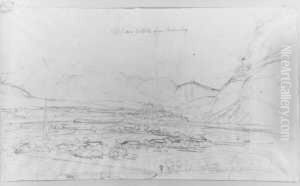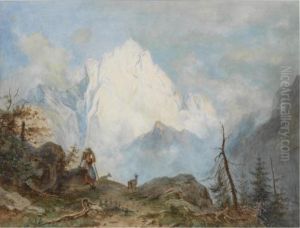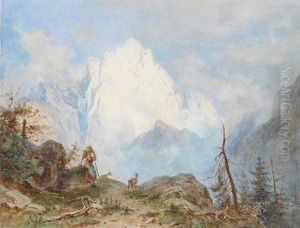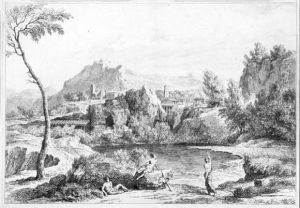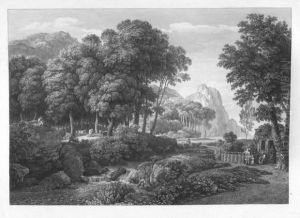Jacob Gauermann Paintings
Jacob Gauermann was an Austrian painter and engraver, best known for his detailed landscapes and depictions of rural life. He was born on February 20, 1773, in Obergiblen, Tyrol, which was then part of the Holy Roman Empire. Gauermann's father was a small farmer and a painter, and his mother came from a family with artistic interests as well. Gauermann's artistic talent became evident early on, and his family supported his pursuit of an artistic education.
Gauermann initially trained under his father and then moved to Vienna to study at the Academy of Fine Arts. His education there allowed him to refine his skills in drawing and engraving. He took inspiration from the works of the Dutch landscape painters and also from nature itself, which is evident in the realistic and detailed style of his works.
Throughout his career, Gauermann often depicted the Austrian Alps, with a particular focus on the relationship between humans and nature. He portrayed the rugged beauty of the landscape as well as the daily lives of the people residing in those areas. His works are characterized by their attention to detail, precise compositions, and the use of light and shadow to create depth and atmosphere.
Gauermann's engravings and paintings were well received during his lifetime, and he was commissioned by various patrons, including the Austrian Imperial family. His work contributed to the development of landscape painting in the 19th-century Austrian art scene and influenced later artists in the genre.
Jacob Gauermann passed away on September 4, 1843, in Miesenbach, Lower Austria. His legacy lives on through his works, which are held in various collections and museums, including the Albertina in Vienna and the Belvedere Gallery. His son, Friedrich Gauermann, also became a painter and is considered one of the most important Austrian landscape painters of the 19th century, continuing the artistic tradition begun by his father.
